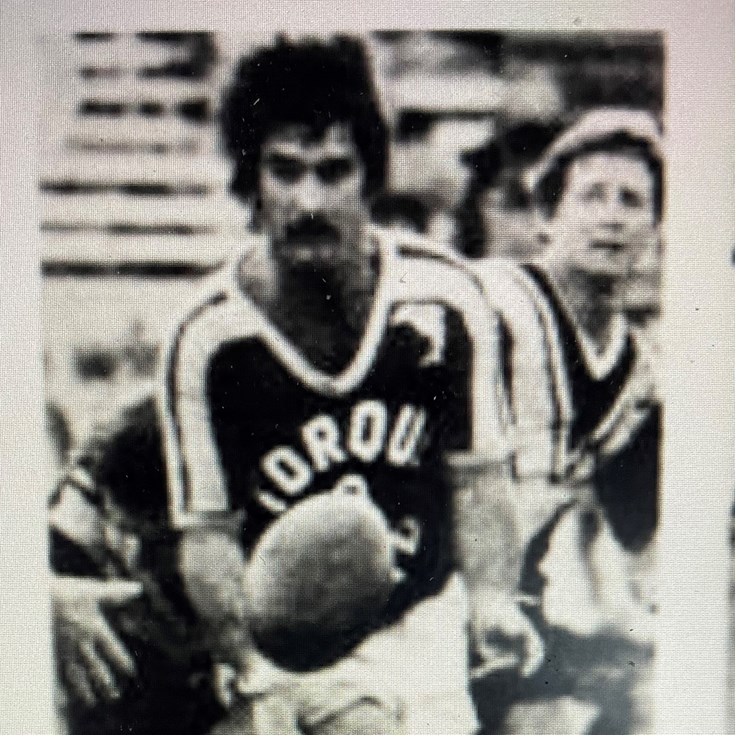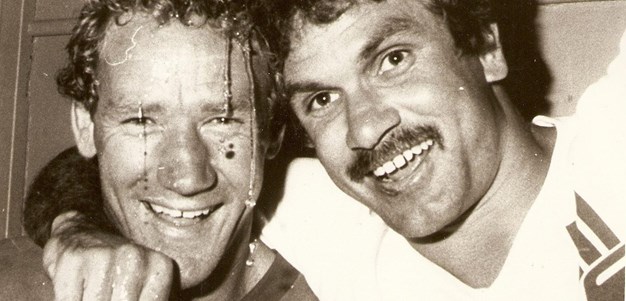

Each week former Queensland State of Origin strike weapon Chris Walker writes exclusively for QRL.com.au
I was raised in a household where our parents always said: "Don't judge people on their colour or religion. Judge them on how they treat you."
Growing up around Toowoomba, I've always had interaction with the Indigenous community.
While there has been a lot written this week about the reasons Indigenous Round in the NRL is important to people of that heritage, I'd like to say from my perspective, why it's valued by white fellas like me.
We, as descendants of Europeans, can't take back what has been done in the past, but we can do our best to close the gap on a number of fronts going into the future.
And one of the most important and immediately achievable ways is by paying due respect.
I've said before that you can look across most sports we play in Australia and there will be a strong contingent of Indigenous athletes at the top – no matter if we are talking rugby league, union, Australian rules, boxing, athletics, tennis, basketball, whatever.
Steve Renouf is my all-time favourite rugby league player.
As a player and a person, he's a hero and an inspiration of mine.
Luckily, I've had a chance to get to know him over the years and the way he treats my family gives me nothing but admiration for the man.
They say you should never meet your heroes, lest you be disappointed, but Steve is definitely an exception.
If I think about other athletes I look up to – Arthur Beetson, Cathy Freeman, Buddy Franklin, Anthony Mundine – they all have that Indigenous link.
While I have had friends from a young age who are Indigenous, I readily admit I wasn't clued up on the history and the extent of what occurred in previous generations.
To me, the thought of segregation and people being blatantly discriminated against was more clearly associated with places like South Africa or the southern states of the USA.
I mean, I wasn't totally ignorant to the discord between white and black Australia, but I convinced myself it was a lot worse in other places around the world.
That's a poor way of facing up to the issue.
In 2015 when I was with the Ipswich Jets, Steve Renouf's uncle Frank Malone (pictured above, far left) showed our team around Cherbourg.
Now, Cherbourg isn't really that far from the area I grew up, and I thought I knew what the place was about – a mission especially for Indigenous people.
But that's a really simplified, possibly even rosy, view of it and it excludes the details that have caused friction in the years since.
Indigenous people were forcibly settled there, from all different areas, and all different mobs. They weren't allowed to speak their own languages. They weren't allowed to leave, weren't counted in the census and weren't allowed to vote for many years.
Frank showed us the ration shed where the occupants of Cherbourg would get allocated their food, providing they had worked for the day.
There's probably no way of tip-toeing around it. White Australians took advantage of them.
Now, here's the thing that really struck home to me.
When Frank was teaching us Ipswich boys about the history, you could see he was proud to educate us on the subject.
He wasn't delivering any information with bitterness or hatred towards those white players who were there on the day.
He understood the same credo that my parents taught me and my brothers: "Don't judge people on their colour or religion. Judge them on how they treat you."
It takes all parties to adopt that attitude.
Generalising about the attitudes of any particular group of people is dangerous.
Indigenous round is certainly important to Indigenous people, but I believe it should be equally important to all areas of society.
Respect paid is respect gained.
Main image of the Cherbourg Hornets team in the 1970s supplied by the Rationshed Museum, Cherbourg.




